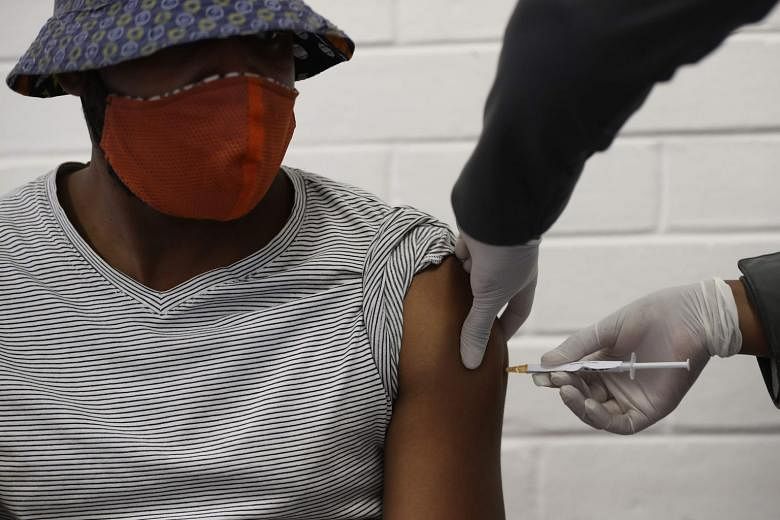LONDON • Trial data for the University of Oxford and British drugmaker AstraZeneca's possible coronavirus vaccine could be given to regulators this year, but corners cannot be cut to speed up approval for emergency use, a scientist leading the trials said yesterday.
AstraZeneca also said yesterday that it had begun a clinical trial of a drug designed to both prevent infection and treat people with Covid-19, with the first volunteers receiving doses.
The Oxford vaccine produced an immune response in its first human trials, underlining its position as one of the leading candidates in the race to combat a virus that has led to more than 800,000 deaths.
"It is just possible that if the cases accrue rapidly in the clinical trials, that we could have that data before regulators this year," Professor Andrew Pollard, director of the Oxford Vaccine Group, told BBC Radio of progress in larger, late-stage trials.
"Then there would be a process that they go through in order to make a full assessment of the data."
The trials hit the headlines earlier this week when the Financial Times reported that the Trump administration was considering fast-tracking the vaccine for use in the United States ahead of the Nov 3 presidential election.
One option being explored would involve the US Food and Drug Administration awarding "emergency use authorisation" in October to the potential vaccine, the newspaper said.
Prof Pollard said the process for emergency use authorisation was well established. "But it still involves having carefully conducted data... and evidence that it actually works," he added.
The Financial Times reported that Washington was considering basing emergency approval of the vaccine on just a small United Kingdom study of about 10,000 people.
Prof Pollard, the chief investigator of the global clinical trials of the vaccine candidate, said AstraZeneca would take the data to regulators once the scientists were satisfied with it.
He said Oxford had enrolled about 20,000 people in trials across Britain, Brazil and South Africa, with AstraZeneca leading a US trial of 30,000 people.
"The size of the trials still isn't the issue here, what you need is to have enough cases accruing during the time of observation in the trials," Prof Pollard said.
Besides efforts to create a vaccine, AstraZeneca has also developed the drug AZD7442, a combination of two monoclonal antibodies (mAbs), for the prevention and treatment of Covid-19.
The drug is being tested on 48 healthy people aged between 18 and 55, the London-listed firm said.
Development of mAbs to target the virus has been endorsed by leading scientists.
The drug mimics natural antibodies generated in the body to fight off infection and can be synthesised in the laboratory to treat diseases in patients. Current uses include treatment of some types of cancers.
US infectious disease expert Anthony Fauci has called them "almost a sure bet" against Covid-19, and AstraZeneca in June received US$23.7 million (S$32.4 million) in funding from US government agencies to advance development of antibody-based treatments for Covid-19.
"This combination of antibodies, coupled with our proprietary half-life extension technology, has the potential to improve both the effectiveness and durability of use in addition to reducing the likelihood of viral resistance," said Dr Mene Pangalos, executive vice-president of biopharmaceuticals research and development at AstraZeneca.
REUTERS











